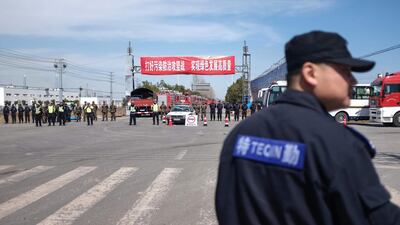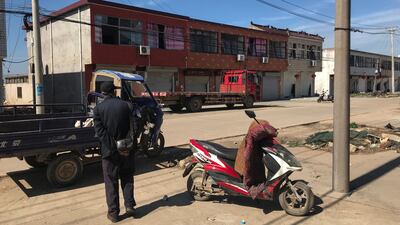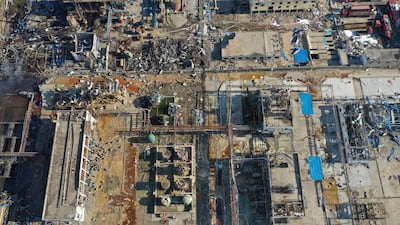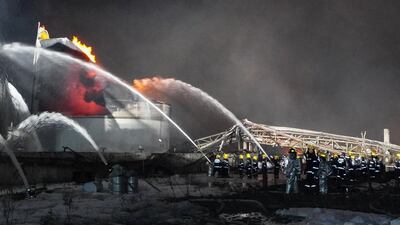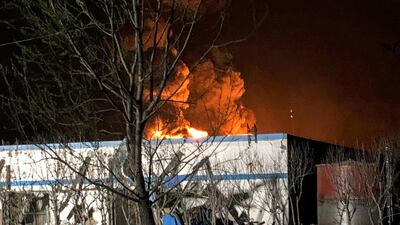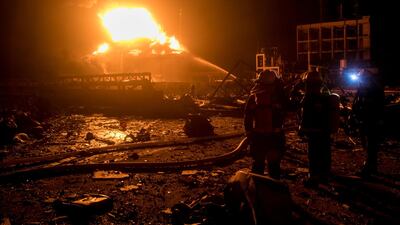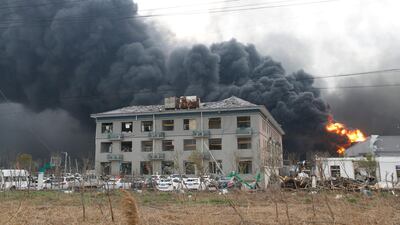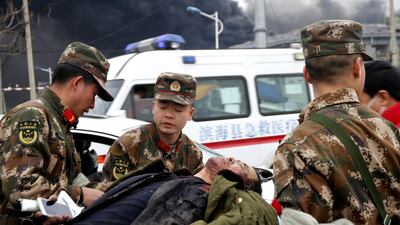The death toll from a huge explosion at a chemical plant in eastern China surged to 47 on Friday, making it one of the country's worst industrial accidents in recent years.
More than 600 people are receiving medical treatment following Thursday afternoon's blast at the industrial park in Yancheng, the city government said on its official Twitter-like Weibo account.
Among them, at least 90 are seriously injured. City officials had previously said that at least 12 people were killed and 30 injured in the explosion in Jiangsu province.
The explosion was so powerful that it apparently triggered a small earthquake, knocked down several factory buildings and shattered the windows of homes a few kilometres away.
"We knew we'd be blown up one day," said one 60-year-old woman surnamed Xiang.
She said she had harboured concerns about safety and pollution at the site for a long time.
Hundreds of rescuers have been sent to the scene, local authorities said, and more than 3,000 people have been evacuated from the blast site.
The blaze from the explosion has been extinguished, local officials said on Friday, after firefighters battled raging flames through the night. Three chemical tanks and five other areas had been on fire.
Black smoke could still be seen rising from the chemical plant on Friday morning.
Authorities, who are investigating the cause of the accident, said a number of people were taken into police custody.
The chemical facility involved in the explosion belonged to Tianjiayi Chemical, a firm with 195 employees established in 2007.
According to local officials, the Jiangsu-based company mainly produced raw chemical materials, including anisole, a highly flammable compound.
The force of the explosion blew out windows and dented metal garage doors of buildings as far as four kilometres from the site.
On the road where Ms Xiang lived, consisting of basic two-storey homes, almost all the windows and some window frames were blown in.
The woman was sitting at home when the explosion occurred and said the force rocked her house and badly damaged her front door.
There was no immediate government help, she said, and residents were clearing the street themselves.
Images broadcast on local media showed how the blast toppled factory buildings, trapping workers inside. State broadcaster CCTV showed rescuers pulling a survivor from the wreckage.
Workers covered in blood were seen running out of the factory, the official news agency Xinhua said on Thursday, citing witnesses.
An aerial view of the blast area showed a large swath of destruction in the industrial park where fires had raged.
Deadly industrial accidents are common in China, where safety regulations are often poorly enforced.
In November, a gas leak at a plant in the northern Chinese city of Zhangjiakou that will host the 2022 Winter Olympics killed 24 people and injured 21 others.
A report published by local authorities last month revealed that the Chinese chemical firm responsible for the accident had concealed information and misled investigators.
In 2015, China saw one of its worst industrial accidents when giant chemical blasts in the northern port city of Tianjin killed at least 165 people.
The explosions caused more than $1 billion (Dh3.67bn) in damage and sparked widespread anger at a perceived lack of transparency over the accident's causes and its environmental impact.
